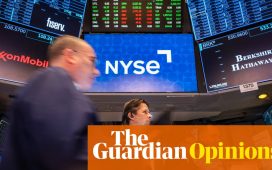
The ongoing corporate default wave in the United States could intensify if the Federal Reserve continues to maintain high interest rates until 2024, warned Apollo Global Management (NYSE:)’s chief economist, Torsten Slok, on Wednesday. The caution comes in light of the rising cost of capital and the increasing impact of Fed rate hikes, particularly on firms with weak credit foundations.
The current default rate for US speculative-grade or “junk-rated” companies is nearing a 4%, a level derived from about half a century of U.S. corporate credit history. This surge in defaults is occurring despite significant upheaval caused by the COVID pandemic among weaker businesses. As floating-rate loans are adjusted higher in line with rate hikes, defaults have also begun to rise among corporations that secured leveraged loans during the previous period of low-cost debt.
Investment-grade bond yields have ascended to around 5.8%, while junk-bond yields are nearing 8.4%. These yields had reached a two-decade low during the pandemic. However, Slok believes that current credit spreads are not factoring in a potential recession.
The increase in corporate bond yields is largely attributed to a higher 10-year Treasury rate, which was recently recorded at 4.33%, marking a near 16-year peak. Credit spreads represent the additional return investors receive over the benchmark rate to offset risks. If a recession occurs and these spreads widen, it could present investment opportunities within the approximately $9 trillion U.S. corporate-bond market, which is predominantly rated investment-grade, indicating a relatively low likelihood of default.
Data from Apollo indicates that retail investor activity seems to be higher compared to 2019 levels, aside from the usual exposure individuals gain through their retirement or pension accounts. A common method for individuals to invest in the corporate-bond market is via exchange-traded funds (ETFs). For instance, as per FactSet data, the iShares iBoxx $ Investment Grade Corporate Bond ETF has decreased by 0.7% this year up until Wednesday, while offering a 4% dividend yield.
In contrast, the iShares iBoxx $ High Yield Corporate Bond has increased by 1.4% this year, offering a 5.8% dividend yield, and the SPDR Bloomberg High Yield Bond ETF has risen by 1.7%, providing a 6.5% dividend yield. Ahead of the Fed’s rate decision on Wednesday afternoon, stocks were mixed, with the central bank anticipated to maintain rates at their 22-year peak of between 5.25% and 5.5%.
This article was generated with the support of AI and reviewed by an editor. For more information see our T&C.






